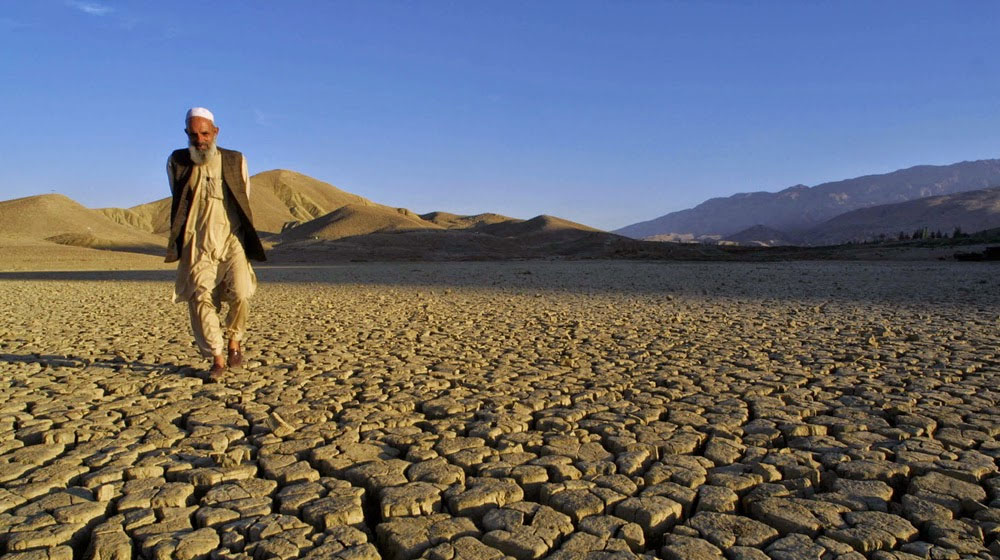Speaking at the World Economic Forum, Prime Minister Imran Khan expressed urgency to tackle the threat of climate change. According to the World Economic Forum, Pakistan is the fifth most climate-impacted country in the world.
Climate change is a long-standing obstacle faced by the current generation. Climate change has adverse economic, social, and political impacts. Floods, severe droughts, recurring heat waves and wildfires, and fierce cyclonic disasters have come and left behind a barrage of problems to deal with.
Pakistan is the 5th Most Climate Impacted Country
An adverse change in the world’s overall climate poses a threat to global progress. Most developing countries are significantly affected by the negative impacts of climate change. Pakistan is a case in point, given its topological placement in the middle of melting glaciers, shifting monsoons, and other disastrous activities triggered by climate change.
The Germanwatch Global Risk Index for 2020 puts Pakistan in 5th place in the category “Most Climate-Impacted Country” in the world. There is a recurring need to raise awareness for climate action, said Imran Khan, while also adapting to the unavoidable impacts of climate change.
ALSO READ
25 November Will Be Celebrated as Pakistan Strategy Day Across the World: WEF
For developing countries, it is vital to formulate a definitive action plan based on the established CBDR-RC principles as agreed under the United Nations Framework Convention on Climate Change (UNFCCC) and the Paris Accord. Developing countries need enhanced climate finance, updated tech support, and capacity building assistance. Although there exists a $100 billion pledge for climate financing assigned to UN-recognized developing countries, nothing definitive has been done to even remotely fulfill it.
The Government of Pakistan has shown a commitment to address the issue of climate change by making a shift towards a “clean and green” Pakistan. With a well-measured climate change agenda centered around flagship initiatives, Pakistan has successfully enhanced its provincial forest cover by over 6 percent. This well-documented initiative was conducted in the KPK province, where a billion trees were planted between 2014-2018.
The Ten Billion Tree Tsunami Project
Pakistan will look to restore and enhance over 2 million acres of forest across the country with the Ten Billion Trees Plantation Project.
This gainful nature-based solution would potentially deliver multiple dividends by creating jobs, reducing carbon, and promoting an adaptive ecosystem.
ALSO READ
Just 1% of World’s Climate Change Funds Are Actually Used on the Most Vulnerable Population: Report
According to WEF, Pakistan’s “Protected Areas Initiative” has enhanced national coverage of protected areas by 12-15 percent. National Parks have increased from 30 to 45 in just one year, despite backlash from an unforeseen COVID-19 outbreak. Environment-related jobs have significantly increased, and opportunities for eco-tourism and climate change adaptation have been readily made available at the same time.
The Renewable Energy Puzzle
Pakistan has expressed a commitment to realize its domestic renewable energy potential in hydro, solar, and wind. All mentioned areas remain untapped, and their integration would potentially shift the country’s energy mix to 60 percent clean energy by 2030.
The Electric Vehicle Policy (2020) is also a vital step towards the country’s clean energy transition, aiming for 30 percent of Pakistan’s vehicular traffic to go electric by 2030. Additionally, the World’s First Zero-Emissions metro line project has been given the go-ahead for launch in Karachi. This project is designed to turn cattle dung into methane, which will act as fuel for the buses. Not long ago, Pakistan shifted its transport fuel quality from Euro-2 to Euro-V.
All these initiatives depict Pakistan’s commitment to transform into an eco-friendly, sustainable, and climate-compatible environment.
Climate Adaptation and Progress
Despite the numerous measures in place to create a stable ecosystem, Pakistan still has a weak profile. Despite the few notable initiatives, Pakistan’s climate adaptation project requires financial support, approximately $14 billion, to speed up the process.
The COVID-19 pandemic has caused unparalleled human suffering and has triggered the worst recession since the 1930s. Developing countries have taken the biggest hit, and their contracting economies pose a threat to raising climate awareness
ALSO READ
Pakistan Clean Air Program 2020 Aims to Reduce Environmental Damage by Vehicles & Factories
Even in these challenging times, Pakistan carved out a silver lining through “Green Stimulus” aimed at nature protection and the creation of green jobs. During the lockdowns, the government created more than 80,000 green jobs. The jobs included planting trees, protecting nature, and improving sanitation. This initiative is planned to be scaled-up to 200,000 by December 2020. The Green Stimulus initiative is helping Pakistan to build momentum for the next ten years.
Pakistan is also actively pursuing innovative global financing for climate agenda through “Debt for Nature” swaps or “Nature Bonds”, based on credible activities outlined above, and the renegotiation of Pakistan’s debt with countries who favor a green revival of the global economy.
Climate change is undoubtedly the most threatening issue today. There is no solution other than enhanced, cooperative, and coordinated global climate action. We need to be prepared and committed to play our role in furthering global efforts to combat climate change.



























